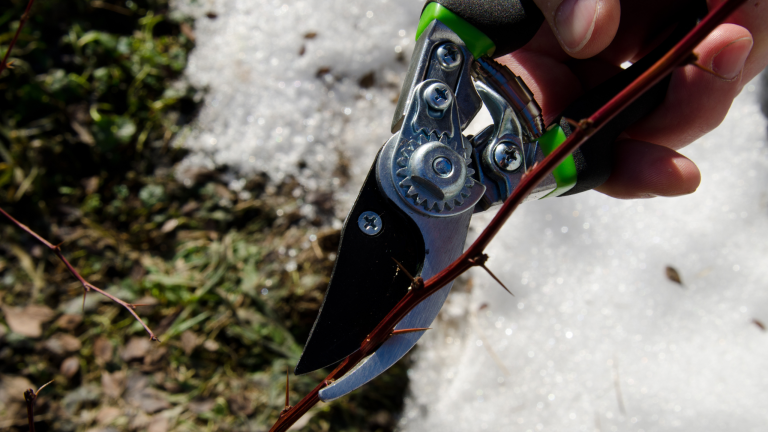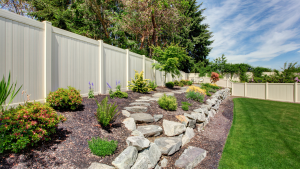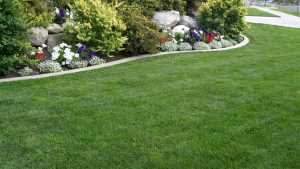As winter comes to Baton Rouge, gardeners might be thinking about getting their gardens ready for the mild but unpredictable weather of the season. Winterizing your garden is essential to keep your plants healthy and prepare for a lively spring. This guide’ll share tips on protecting plant roots, keeping the soil moist, setting up the proper watering routine, and answering common questions about preparing your garden for winter. If you’re looking for a team that prioritizes your landscape’s health, choose Baton Rouge Landscape Pros.
Use organic mulch to insulate plant roots from temperature changes and retain warmth in the soil.
Choose the Right Mulch: Opt for mulch materials like straw, shredded leaves, or pine straw. These materials help retain moisture and provide a buffer against extreme temperatures.
Watering Before Frost: Hydrate your plants thoroughly before the first frost to ensure they enter winter well-hydrated. Heat is better retained by moist soil than by dry soil.
Avoid Overwatering: While adequate moisture is essential, overwatering can be detrimental. Ensure the drainage system works properly to avoid soggy soil, which can cause root rot.
Windbreaks for Delicate Plants: Establish windbreaks using burlap or other materials to shield delicate plants from harsh winter winds.
Soil Erosion Prevention: By taking care of plant roots, using the right mulch, and keeping the soil moist, we can stop dirt from washing away. Mulch is like a shield that prevents raindrops from hitting the ground too hard and keeps the vital topsoil from being carried away.
Enhancing Soil Structure: Mulching keeps the soil moist and makes it better over time. Organic mulch breaks down slowly, adding good stuff to the ground and making it more fertile and structured.
Weed Suppression: helps suppress weed growth, reducing competition for water and nutrients. This is crucial for maintaining a healthy and well-nourished garden, especially during the growing season.
Temperature Regulation: acts as an insulating layer, helping to regulate soil temperature. In addition to retaining warmth in cold weather, it also provides a cooling effect during hot spells, creating a more stable and conducive environment for plant growth.
Promoting Microbial Activity: Using organic mulches helps good microorganisms grow in the soil. These tiny living things are crucial for moving nutrients around, breaking down old plants, and keeping the ground healthy.
Protecting plant roots and retaining soil moisture through proper mulching practices safeguards plants from environmental stressors and promotes a healthy and sustainable gardening ecosystem.
Guidelines for Proper Watering Schedules:
Water in the Morning: Watering in the morning allows plants to absorb moisture before temperatures drop at night, reducing the risk of freezing. Additionally, it helps prevent the development of fungal infections once the leaves have had time to dry during the day.
Adjust Frequency: Reduce watering frequency during winter, but maintain deep watering sessions to promote healthy root development. While plants may not require as much water in colder months, ensuring that the water reaches the root zone effectively is crucial.
Monitor Soil Moisture: A moisture meter can gauge soil moisture levels. When the top inch of soil seems dry, water it. Regular monitoring prevents both underwatering and overwatering, helping to maintain optimal soil conditions.
Protect Container Plants: Container plants may require more frequent watering as they are exposed to temperature fluctuations. Insulate containers with bubble wrap or move them to a more sheltered location to protect the roots from extreme cold and temperature variations.
Water Dormant Plants: Even in dormancy, plants need some moisture. Water them sparingly to prevent dehydration. While dormant, plants still undergo essential processes, and maintaining minimal moisture ensures they remain healthy during their stationary phase.
Use Drip Irrigation: Drip irrigation systems provide water straight to the soil, minimizing water loss through evaporation. This method delivers consistent moisture directly to the root zone, promoting water conservation and efficient plant hydration.
Snow as a Natural Insulator: Leave a light layer on your garden beds if it snows. Snow acts as an excellent natural insulator, protecting plants from extreme cold. The insulating effect of snow helps maintain a more stable soil temperature and shields plants from the harsh winter elements.
Consider Plant Watering Needs: Different plants have varying water requirements. Tailor your watering schedule to suit the unique requirements of every kind of plant in your garden. This method guarantees that every plant gets the appropriate quantity of moisture for optimal growth and health.
Mulching for Water Conservation: Besides retaining soil moisture, mulching helps conserve water by reducing evaporation. Apply a layer of mulch around plants to minimize water loss from the soil surface and maintain a more consistent moisture level in the root zone.
FAQ About Winterizing Your Garden
Q1: Can I prune my plants in winter?
A: It’s best to prune in late winter or early spring when plants are dormant.
Q2: Should I fertilize during winter?
A: Hold off on fertilizing until late winter or early spring to avoid encouraging new growth susceptible to frost.
Q3: Can I leave fallen leaves in the garden?
A: Yes, fallen leaves can serve as additional mulch, providing insulation and nutrients to the soil.
When to Call a Landscaping Professional
If you need help determining what your garden needs or have problems you can’t fix, it’s a good idea to talk to Baton Rouge Landscape Pros, experts in landscaping. If you see bugs harming your plants or notice signs of disease, they can help. They’re also asking if you have a big or tricky garden and need advice on picking plants that can handle the cold.
Conclusion
Winterizing your garden in Baton Rouge is a proactive step towards ensuring a healthy and thriving landscape come springtime. By following these guidelines, you’ll protect your plants and set the stage for a successful gardening season. Remember, the key to a flourishing garden is adaptation, and with the proper care, your garden can weather the winter months and emerge vibrant and full of life.





